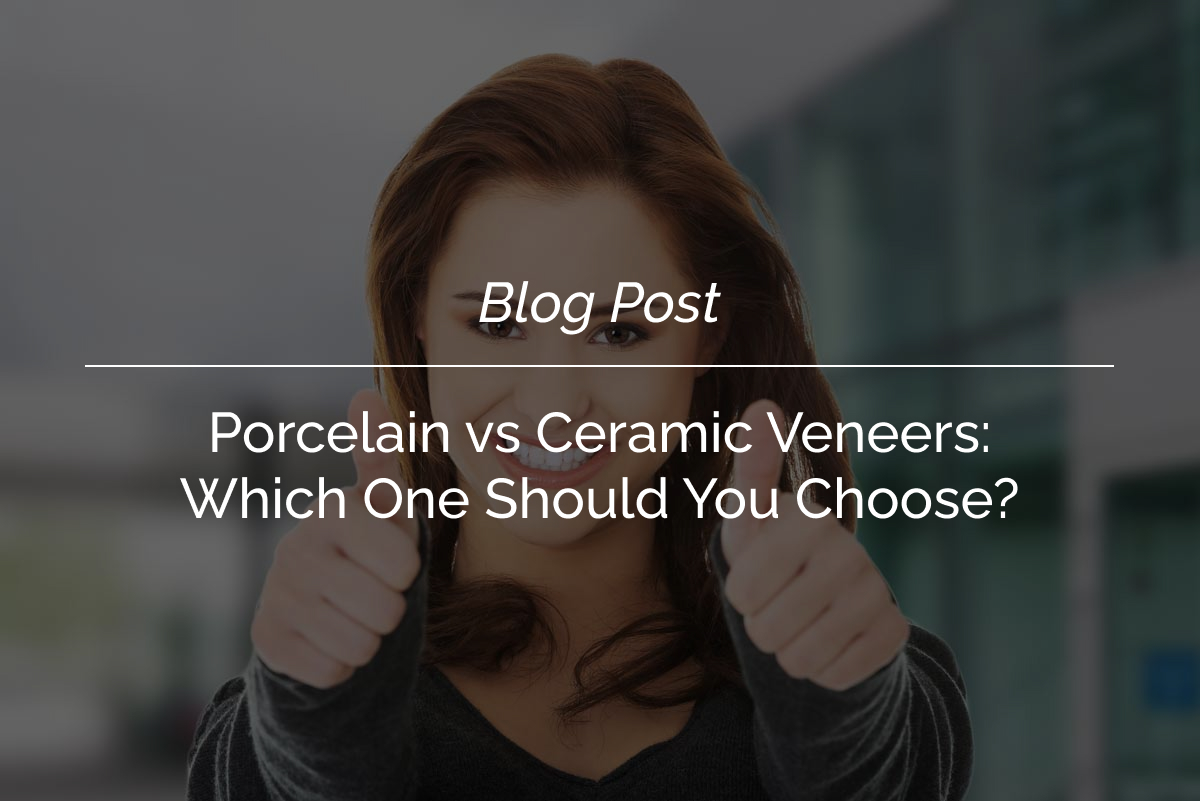When it comes to treatments that can truly transform your smile, veneers are one the best cosmetic dentistry options available. Veneers can cover stained teeth that don’t respond well to teeth whitening, cover irregularities in tooth size, make chips disappear, and generally give your teeth a perfectly healthy, streamlined appearance.
However, not all veneers are the same. Some are made of porcelain, while others are made of ceramic. Below we look at the differences between each.
How Do Dental Veneers Work?
Veneers are thin, fingernail-shaped artificial covers placed on the front surface of the teeth. They are used to protect teeth or for aesthetic purposes. The procedure requires a small amount of the tooth structure to be removed. This allows the thickness of the veneer to sit level on the tooth’s surface. Your dentist will take photos and an impression of your tooth/teeth to send to a laboratory, where they’ll create your custom veneers for each tooth as required.
Are Dental Veneers Right for You?
Veneers are great for masking imperfections such as crooked, misaligned or gappy teeth. Both porcelain and ceramic veneers are effective treatments for simultaneously concealing multiple imperfections and work well in concealing damage resulting from grinding or physical trauma.
They’re also a far better option for patients who have severely discoloured teeth that can’t be remedied with professional teeth whitening treatments. Others prefer to use veneers over whitening treatments because they offer a permanent solution. But what is the difference between porcelain and ceramic veneers?
Porcelain Veneers
Porcelain veneers are generally considered to be the gold standard. Porcelain veneers are very strong and look and feel like natural teeth. This is because porcelain has a natural translucent appearance that most closely resembles real teeth. You need to be satisfied with the shade and overall look of them before they’re placed in, as porcelain veneers cannot be whitened afterwards.
Porcelain is also an extremely durable option. You can expect porcelain veneers to last at least 10 to 15 years and possibly a lifetime with proper care. While porcelain is strong and resistant to staining, it is still possible to chip or stain porcelain veneers without proper care and with excessive exposure to coffee, tea, cigarettes and red wine.
Ceramic Veneers
Ceramic veneers are also sometimes called composite resin veneers. This option has the advantage of being cheaper than porcelain, faster in terms of treatment time and doesn’t require the removal of any existing tooth, making the process easier and pain-free. However, ceramic or composite resin is more porous than porcelain, so you may be more susceptible to getting stains on your veneers.
Ceramic veneers are also more limited in how much they can cover. The treatment process involves applying a resin a layer at a time to cover the existing tooth. Each layer is shaped until the size and shape of the teeth are corrected. If you have significant spacing issues, this process may not work. Ceramic veneers tend not to last as long as porcelain, but once again this depends on individual habits and lifestyle factors.
Visit King Street Dental for Veneers
Dentist Templestowe offers quality general and specialized dental care services. This includes everything from regular check-ups to custom dental veneers. Speak with our dentists today to find out more about getting veneers.
Book an appointment today by calling 03 9841 8033 or contact us online.
